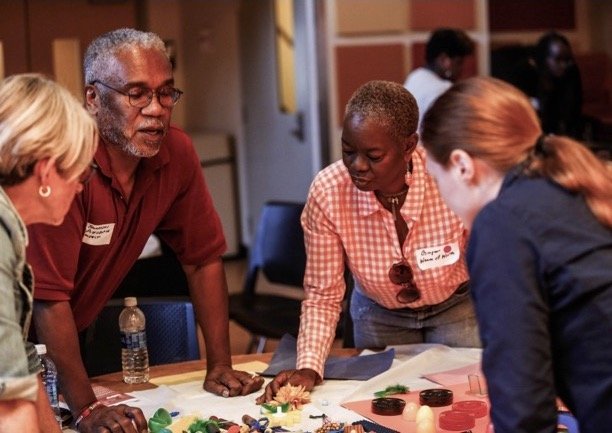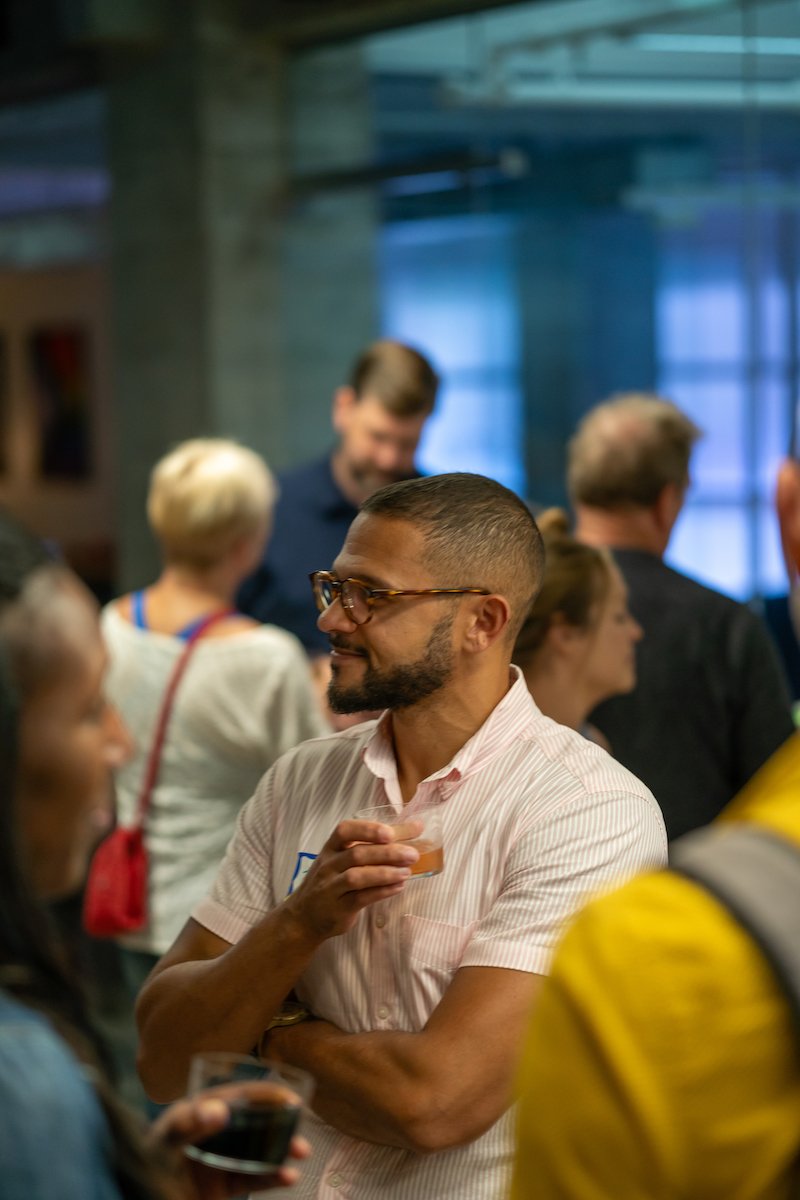
Civic Trust and Aligned Leadership
Fostering creativity, connection, and equitable outcomes for Portland by bringing together civic leaders in a “shared learning” community
Although Portland has many paths for broad civic engagement, the region does not have a multi-sector civic space for leaders to build trust and work collaboratively on challenges facing Portland.
We believe it’s time to build one.
Background
In late 2021, the North Star team invited a small group of individuals from Meyer Memorial Trust, Oregon Humanities, Social Venture Partners Portland, United Way of the Columbia-Willamette, and Western States Center to an open-ended conversation about what role we might collectively play in addressing the signs of clear civic distress in our city — increasing property crimes and homicides, un-civil engagement with elected leaders, racialized police violence, increased presence of anti-government and white supremacist paramilitary groups, and a growing sense among Portlanders that the city is moving in the wrong direction, and that too little is being done about it.
We saw that Portland leaders across different sectors are hungry for a space to work together on “the future of Portland” — whether they define that as reviving downtown, investing in neighborhood centers, addressing homelessness, finding dynamic leaders to serve in public office, or fully reforming the City’s elections and governing charter.
We believe that how civic leaders come together in this pivotal moment will likely set the course for where we arrive in five, ten, twenty years. So, it’s important to do it in a way that builds civic strengths that we know we’ll need throughout that period — and in a way that identifies, cultivates, tests, and supports people (and communities) who can work together as leaders now and in the future.
OUR KEY TERMS
Civic Leader Anyone who convenes a community — a broad definition that can respond to the many ways that Portlanders work, play, pray, protest, plan and explore together.
Organization A group of people with an organizing structure and civic purpose, such as advocacy groups, volunteer groups, philanthropic institutions, government agencies and offices, churches, service providers, business associations, theater groups, and more.
Our Research and Progress
During the course of our engagement, we came to see that our best focus might be to: Foster creativity, connection, and equitable outcomes for Portland by creating a meaningful “shared learning” space that can engage, support, enrich and deepen trusting relationships among the people who convene and lead civic spaces in our region.
Our report shares the key themes and takeaways from four areas of research and “testing the water” on these ideas:
Engaging Civic Leaders - “Building Bridges” (2022)
North Star, Western States Center and Oregon Humanities hosted a series of gatherings for executive leaders of civic organizations in Portland in a broad range of sectors: arts, business, philanthropy, activism, direct service, media, and government.Discovery - Shared Learning Spaces (2022)
We learned about the power of “shared learning communities” to help metropolitan areas respond to crises, build trust, and create equitable outcomes and economic growth.Community Interviews (2023)
We interviewed people to gut check the need for a new civic space, and to flesh out the approach. We came away with complex insights and an appetite to address the clearest through-line: Although Portland has many opportunities for broad civic engagement, the region does not seem to have a multi-sector civic space for leaders to build trust and work collaboratively on challenges facing Portland.Design Workshops (2023)
North Star hosted an afternoon of interactive “design workshops” that explored design challenges with creating a new civic space, including how to ensure the space is action-oriented, inclusive, builds trust, and supports of the existing civic ecosystem.Pilot Year (2024-2025)
North Star invited a small group of civic leaders to help build a new center where civic leaders can bridge difference, strengthen trusting relationships, learn together about the challenges and opportunities in our region, and develop a vision for Portland based in experiences from business, philanthropy, public service, arts, culturally specific communities, and a broad range of policy expertise. The pilot year ends in May 2025, and we will evaluate the program in the summer of 2025.
Themes from our research
A Vision for Portland’s Future
We believe that a healthy “center” is a space where participants can explore competing and dissonant visions for the future of Portland. But we also believe it is important to start with animating shared values.
These are ours:
-
Portland’s hopeful future requires a thriving, connected, multi-racial middle class.
Decades of research shows that metropolitan areas with a strong multi-racial middle class are regions that thrive, where white, Black and brown community members experience increased opportunity and connection. These studies show critical correlation between a multiracial middle class and both civic engagement and economic prosperity.
-
Portland needs a plan to welcome population changes.
To date, our community has come up short when imagining and enacting strategies to welcome our growing and changing population in a way that builds a trusting community and shared livability, and in a way that reflects our collective concerns about the changing climate. We believe that the most inspiring and impactful solutions for the City will respond to these needs.
-
Portland needs to transform and revitalize how elected leaders and communities engage.
Elected leaders cannot do the work our region needs without a fully engaged, collaborative, and motivated civic community. And … civic leaders will be most effective in advancing impactful reforms in accountable partnership with elected leaders.
-
Portland needs a positive and productive “center” to drive these changes.
We are interested in strengthening the culture of a “center” in Portland — defining “center” as a place that brings together people of different ideologies and experiences so you can accomplish work together and get things done.












